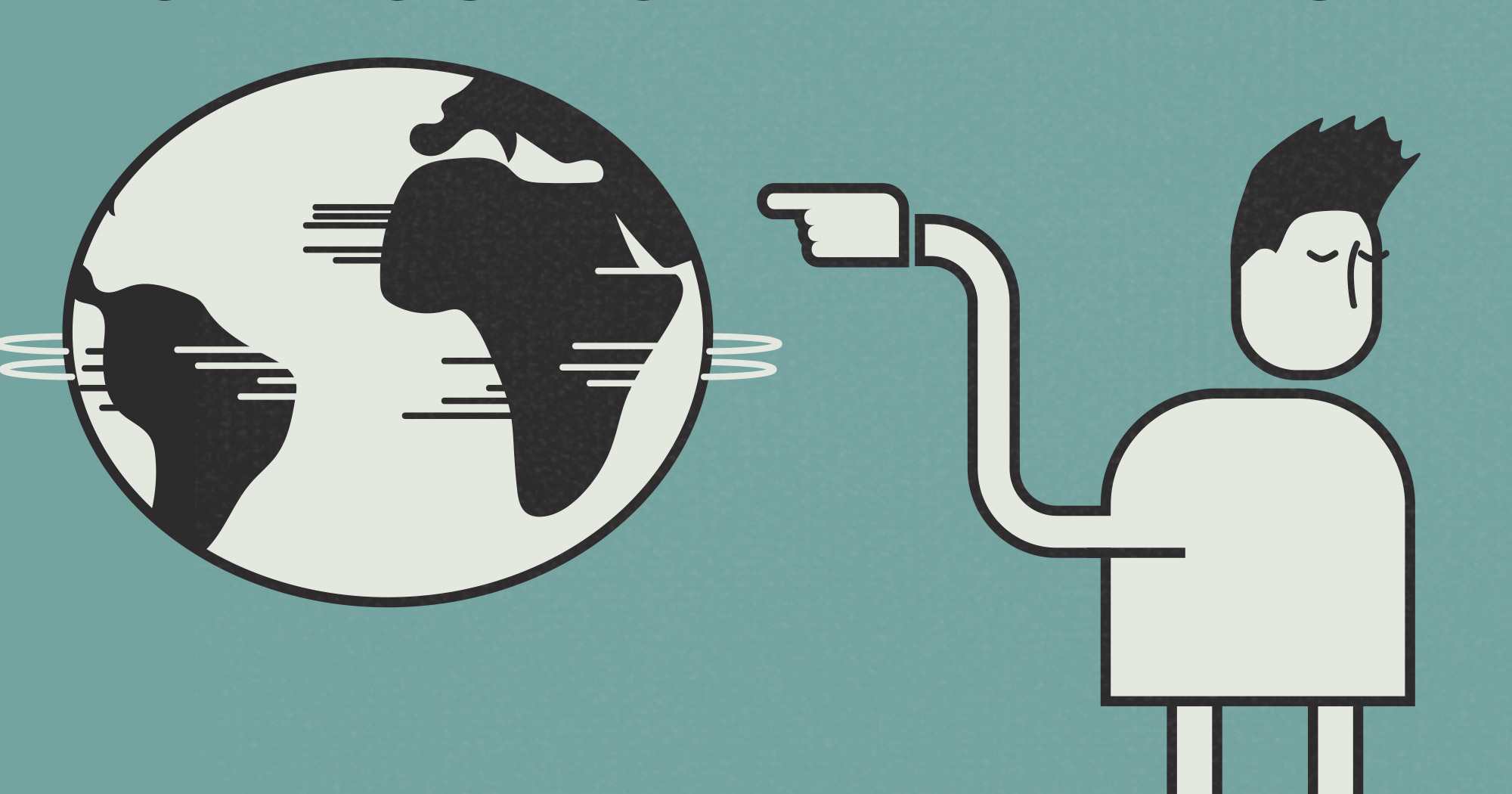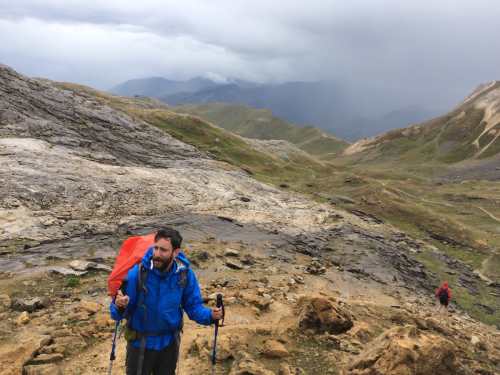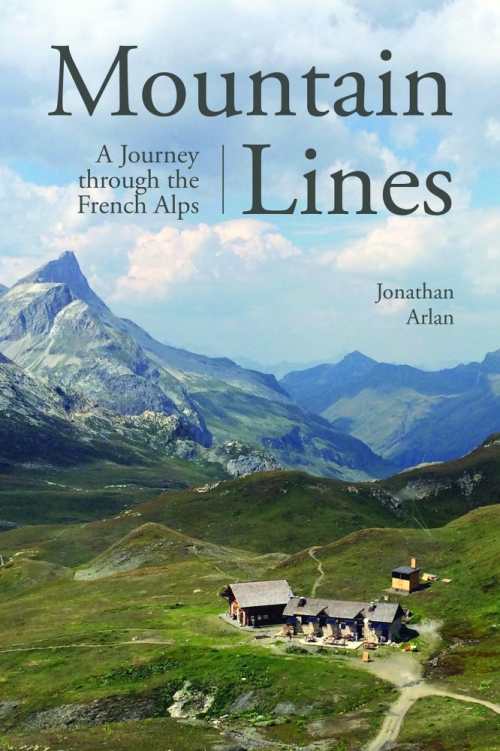Pick Your Own Adventure

Wanderlust. The travel bug. We speak of the inborn desire to be on the move almost as an affliction—as if it is not something that, when addressed, can bring great peace and clarity, not to mention a colorful collection of passport stamps. Those familiar with the release that comes from taking care by taking off will find a kindred spirit in Jonathan Arlan, whose Mountain Lines (from Skyhorse Publishing) recalls his long walk through the Alps to Nice, France–less toward an expected revelation than to answer an internal pull.
Written in the language of the road—hopeful, curious, and open—Arlan’s book encompasses both traveling mishaps and unexpected treats. It is lively, blunt, and inspiring, and all of those idly thinking about plane tickets and challenging adventures are sure to respond to its turns. Read it; draw from it your own inspiration; pick a spot on the map; and go!
Jonathan Arlan, Author of Mountain Lines
How, if at all, did your notion of traveling “right” change over the course of your walk?

Jonathan Arlan: 'I can't imagine traveling without books.'

Well, I’m slightly neurotic, terribly indecisive, bad at planning, and easily sidetracked. So I never really feel like I’m traveling right, by which I mean that I don’t think traveling is something I’m very good at, even though I’ve spent a fair amount of time doing it and it’s something I really enjoy. But I could never in a million years, for example, organize a trip or put an itinerary together for other people.
In the months leading up to my walk, I had quit my job and left my life in New York to wander around Europe with no real goal or end in sight. But in the back of my head, I knew I couldn’t wander forever. I would eventually run out of money, for one thing, and I suspected I’d get tired of it. I didn’t want to reach a point where I was going through the motions just to keep traveling. That’s when I started thinking there might be a better, or at least, different way to do things.
When I learned of the route through France, one of the things that appealed to me was its fundamental simplicity. Your world becomes so much smaller when your days consist almost exclusively of walking, eating, and sleeping. My hope, or one hope, was that in this shrunken down mountain-walking world, I wouldn’t worry as much about everything I wasn’t doing—everything I was missing—and I’d be able to live in the moment a bit more. And to a certain extent, I was right. The weeks I spent walking through the Alps brought me as close as I’ve ever been to feeling like I was actually making the most of my time traveling. It was thrilling.
You say you walked to walk. You did arrive in Nice; did you end up where you wanted to be?
If you’d asked me before I started what I hoped to get out of the journey, my answer would have been extremely simple: I genuinely wanted to know what it would feel like to walk every day for a really long time. I don’t know why this struck me as an interesting question, other than the fact I really like walking and I love reading books about big journeys, especially journeys on foot. I liked the idea, too, that something as “easy” as walking might actually be kind of adventurous. This had never occurred to me; real adventures usually involve rafts, or jungles, or high-altitude mountaineering—life and death situations and real danger. Not just walking.
So getting to Nice was important in the beginning in that it gave me a very tangible goal, even in the first couple weeks when the sea felt unbelievably far away. But by the end, arriving in Nice was oddly irrelevant. At some point, maybe halfway in, my mindset had changed. Barring some horrible accident, I think I knew I would make it to Nice; it was just a matter of time and energy. So it faded into the background a bit (up until the last few days, that is, when it was all I could think about). I don’t know when the change occurred, but it’s an interesting shift to think about. And I have to laugh: I basically stumbled into every old adage about travel being more about the journey than the destination. The thirty-five days I spent getting to Nice are more meaningful to me than the fact that I managed to get myself there.
Can you tell us about the experience of working with Skyhorse to bring Mountain Lines to press?
Honestly, Skyhorse was incredible. My editor, Kim Lim, is brilliant. She understood intuitively what I wanted to say with my book and she pushed me, in the kindest way, to get it right. Everyone was extremely encouraging of the project from the start. I could not have asked for a better team to guide me through the many, many challenges and surprises of being a first-time author.
What should every semi-spontaneous traveler keep in their packs?
An e-reader of some kind, even if it’s a phone that will let you read books. I keep trying to bring printed books with me on trips, but they are so impractical I end up giving them away or just leaving them unread in hostels. I can’t really overstate what a lifesaver e-books have been. I can’t imagine traveling without books to keep me occupied on long bus rides, distracted during long layovers, and inspired on long (aimless) journeys. My battery died once at the beginning of an overnight train ride to Bulgaria that was supposed to take eight hours, but ended up taking closer to twenty. A man in my cabin offered me a newspaper, but it was in Turkish, which I can’t read. And the lights wouldn’t stay on for more than a few minutes anyway. I’m very careful about keeping those batteries charged now.
If you could design another dream adventure—putting aside concerns of money, time, and other nettlesome restrictions—where would you go, and what would you do?
I wish I could blow people’s minds with an epic dream adventure idea here—it isn’t like I haven’t thought about it—but I tend to think on such a small scale. That said, I’ve had it in my head to bike Japan from top to bottom for years. I’m not much of a cyclist, and I’m sure it’s been done already—there may even be a book about it (see Alan Booth’s The Roads to Sata for a good read about walking Japan). But I managed to see so little of the country when I lived there in my early twenties, that I’m always feeling drawn back. I don’t know if it will ever happen, but it would be an amazing adventure. Japan is every bit as charming and mysterious as it’s made out to be. You could spend years there and only scratch the surface.
What projects are you working on next?
The process of writing and publishing my book has been extremely gratifying and the responses I’ve received from readers are beyond encouraging. I would love to get moving on another big travel writing project soon, and hope to start exploring a few ideas in the very near future. For the time being, though, I have a stack of beautiful new travel books that have come out in the last few months that I haven’t had time to read and I can’t wait to catch up on them.

Michelle Anne Schingler is the managing editor at Foreword Reviews. She also prefers traveling with minimal plans. You can follow her on Twitter @mschingler or e-mail her at mschingler@forewordreviews.com.
Michelle Anne Schingler
